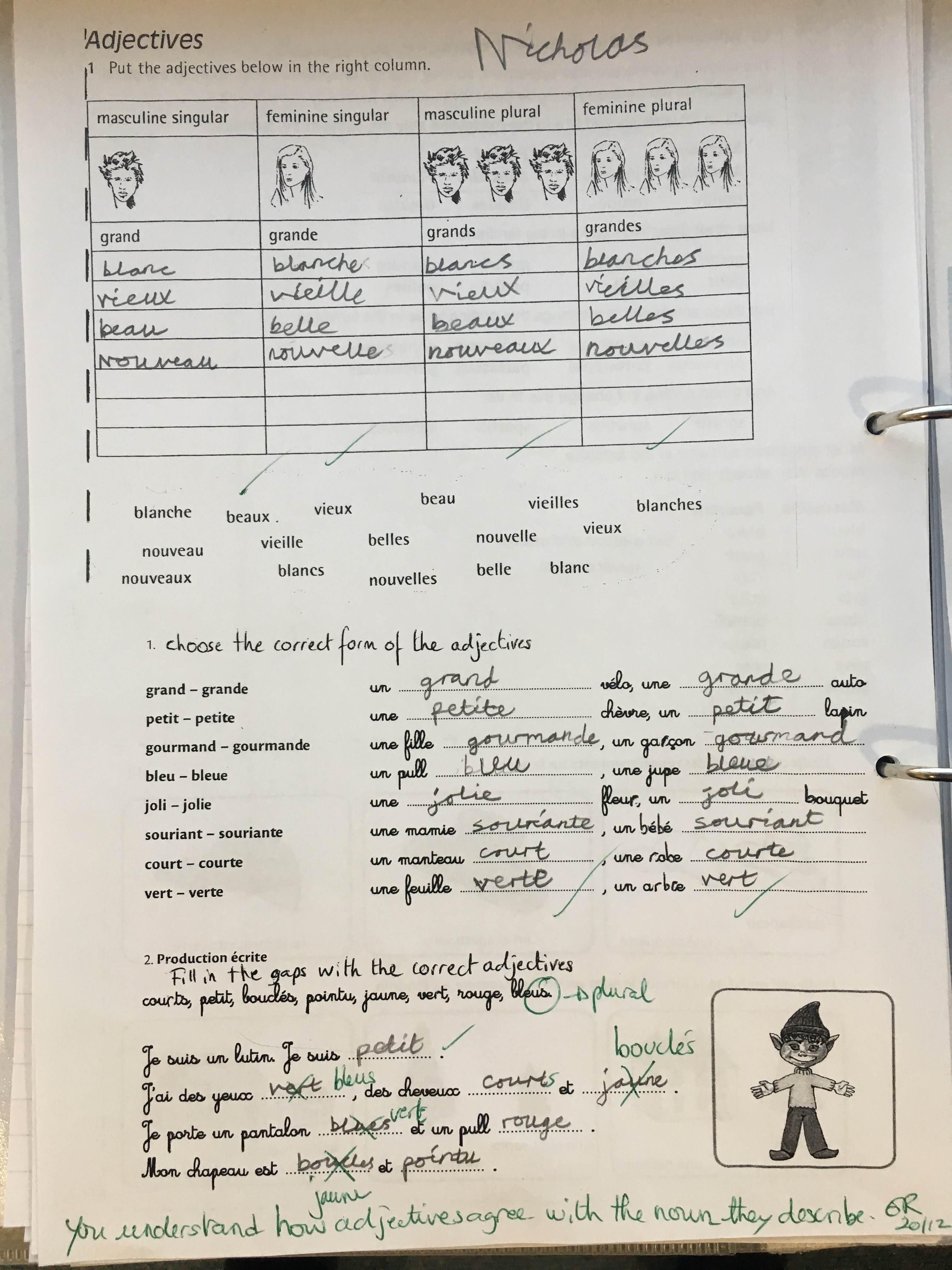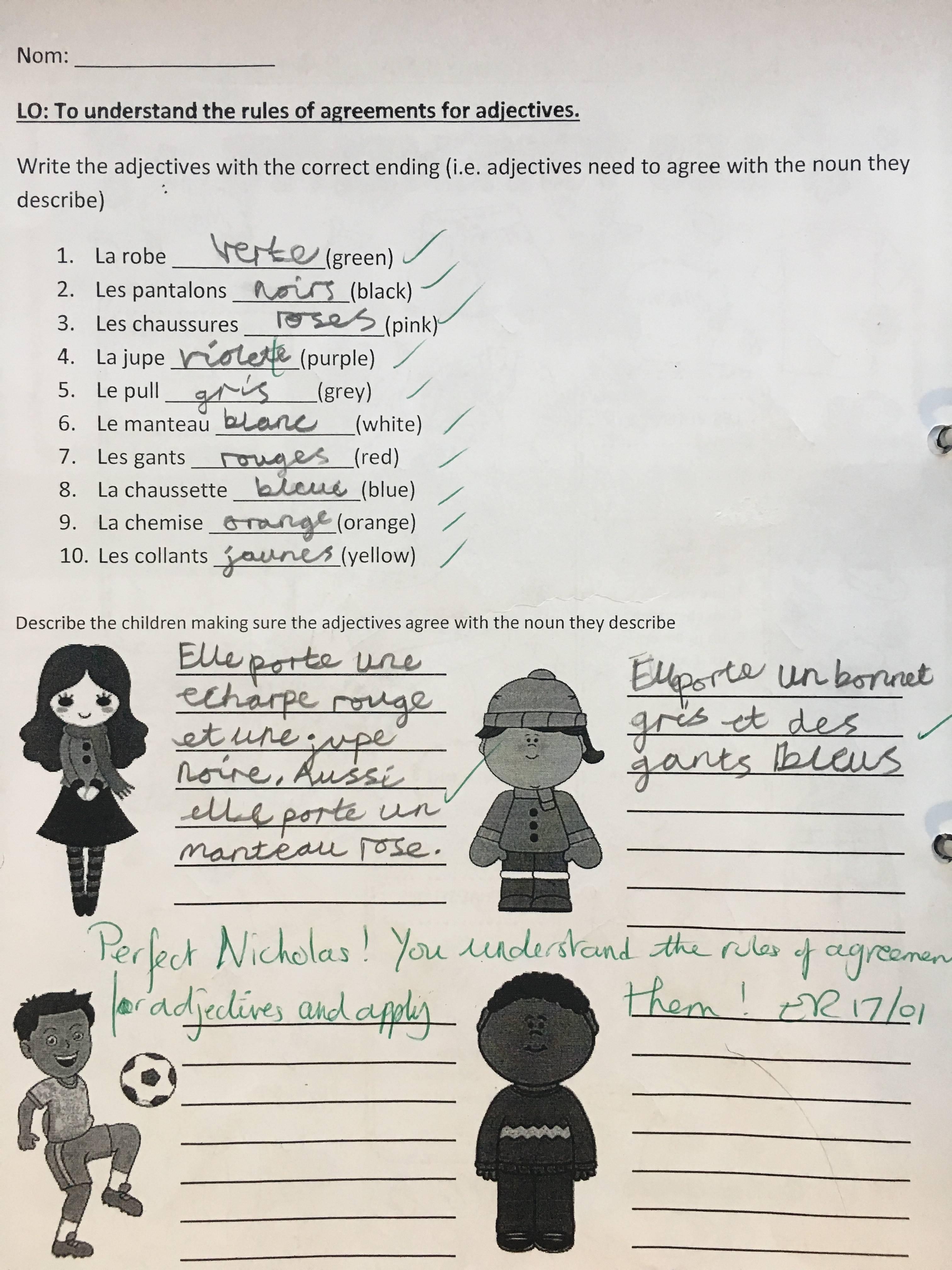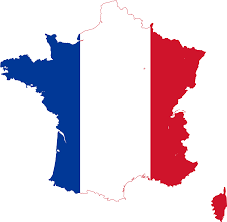
INTENT, IMPLEMENTATION AND IMPACT STATEMENT
Teacher: Mrs Ramdarshan
"We interpret the term Modern Foreign Language' to include the use of any living language to communicate ideas and receive information."

MFL prepares pupils to participate in a rapidly changing world in which the rise of international commerce means that pupils need to be equipped with the skills needed by the international workplace. Pupils will be encouraged to develop language lifelong learning skills. Increased capability in the use of MFL promotes initiative, confidence and independent learning and encourages diversity within society.
Objectives
Our objectives include:
· Develop listening and comprehension skills
· Be able to express opinions, articulate feelings and formulate appropriate responses to increasingly complex instructions and questions.
· Develop accurate pronunciation and intonation
· Speak in sentences using familiar vocabulary, phrases and basic language structures
· Read stories for enjoyment and to practise vocabulary
· Memorise words and interpret meaning
· Learn about cultural traditions, aspects of everyday life and celebrations in France and French speaking countries and make comparisons with their own
· Work individually and collaboratively, taking an active role in group tasks
· Write phrases from memory, and adapt these to create new sentences

MFL provides opportunities for teaching the following cross-curricular themes:
· Literacy - listening, writing, reading and speaking skills
· Maths – number recognition, practice, calculations, money, exchange rate
· PHSCE – through learning about attitudes towards others, through exploring cultural similarities and differences, through discussion about stereotypes and misconceptions, through working and co-operating with others
· RE – Religious festivals and beliefs in French speaking countries
· History – links between the UK and France, wars and alliances
· Geography – locations of the countries, exploring similarities and differences between places
· ICT – research work and educational games on the internet
· Citizenship
· European Awareness
Class Organisation and Teaching Style
During French sessions children are given the opportunity to work as a class, as individuals and as part of a group. The choice of class organisation is determined by the learning task. By its nature MFL will involve lots of interaction with visual, auditory and kinaesthetic prompts. We use a variety of techniques to encourage the children to have an active engagement in the MFL. These include games, role-play and action songs. We use puppets and mime and actions to accompany new vocabulary as this serves to demonstrate the language without the need for translation. We emphasise listening, responding and speaking skills with the addition of simple reading and writing skills.
We use multi-sensory and kinaesthetic approach to teaching as we believe that this serves to reinforce memory. We make lessons as enjoyable as possible so that the children develop a positive attitude to the learning of French. We build children’s confidence through praise for any contribution they make, however tentative. Children are rewarded with French stickers during lessons and in their work books and with a certificate to take home when special effort or progress has been made by a pupil.
Have a look at some of the work which we have produced in each year group.
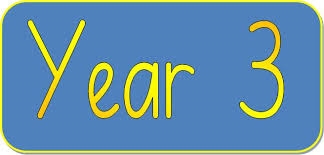
Children’s learning is vocabulary based; they are getting familiar with new sounds and are focusing mainly on nouns but are also challenged to build simple sentences. Children are exposed to basic rules of grammar such as genders for nouns and singular personal pronouns. The topics covered in year 3 are greetings, numbers to 20, family, colours and shapes. Christmas and Easter in France, where we live, body parts, the weather, days, months and birthdays, clothes, animals and the Eiffel Tower and the 14th July.
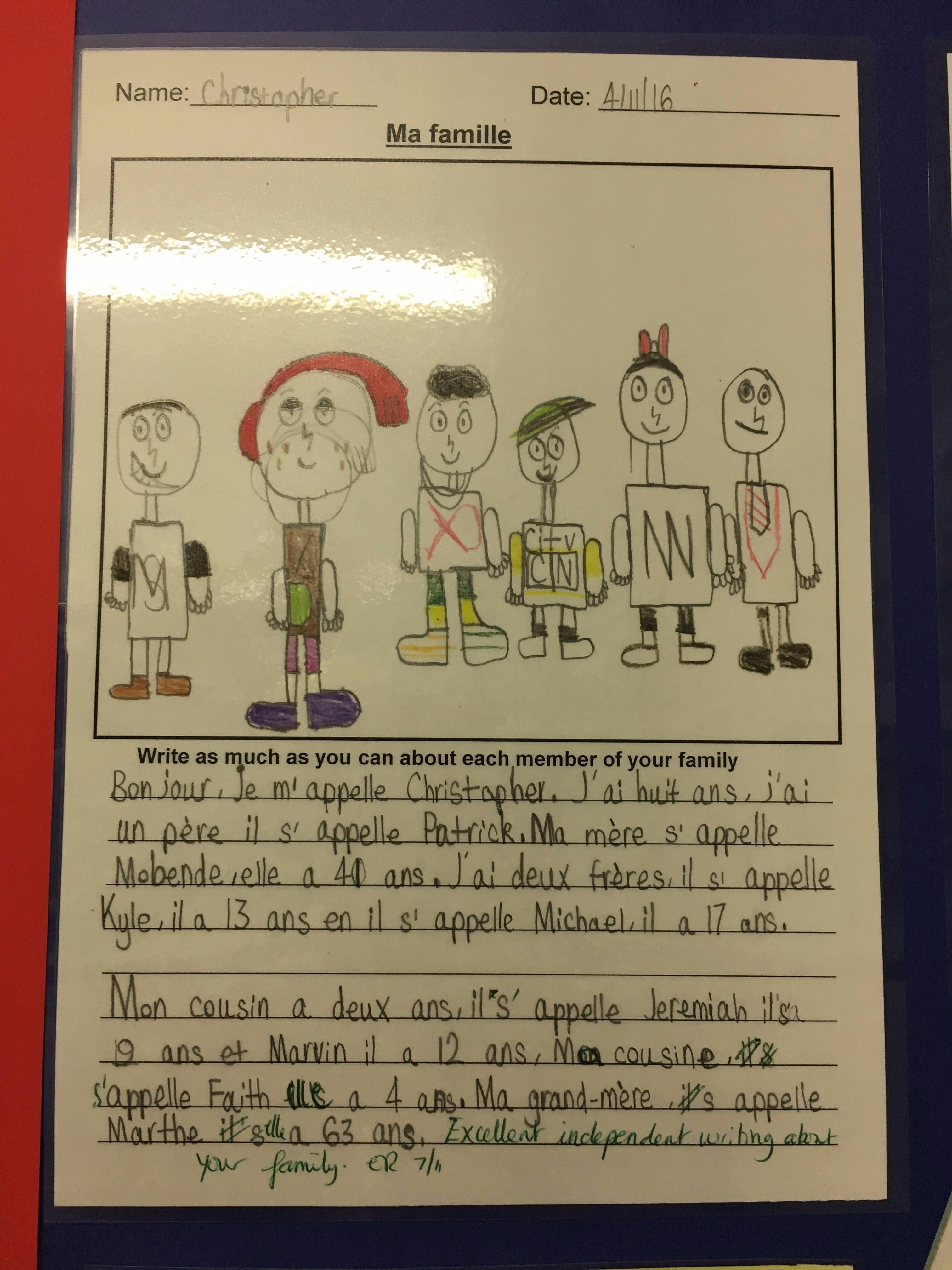
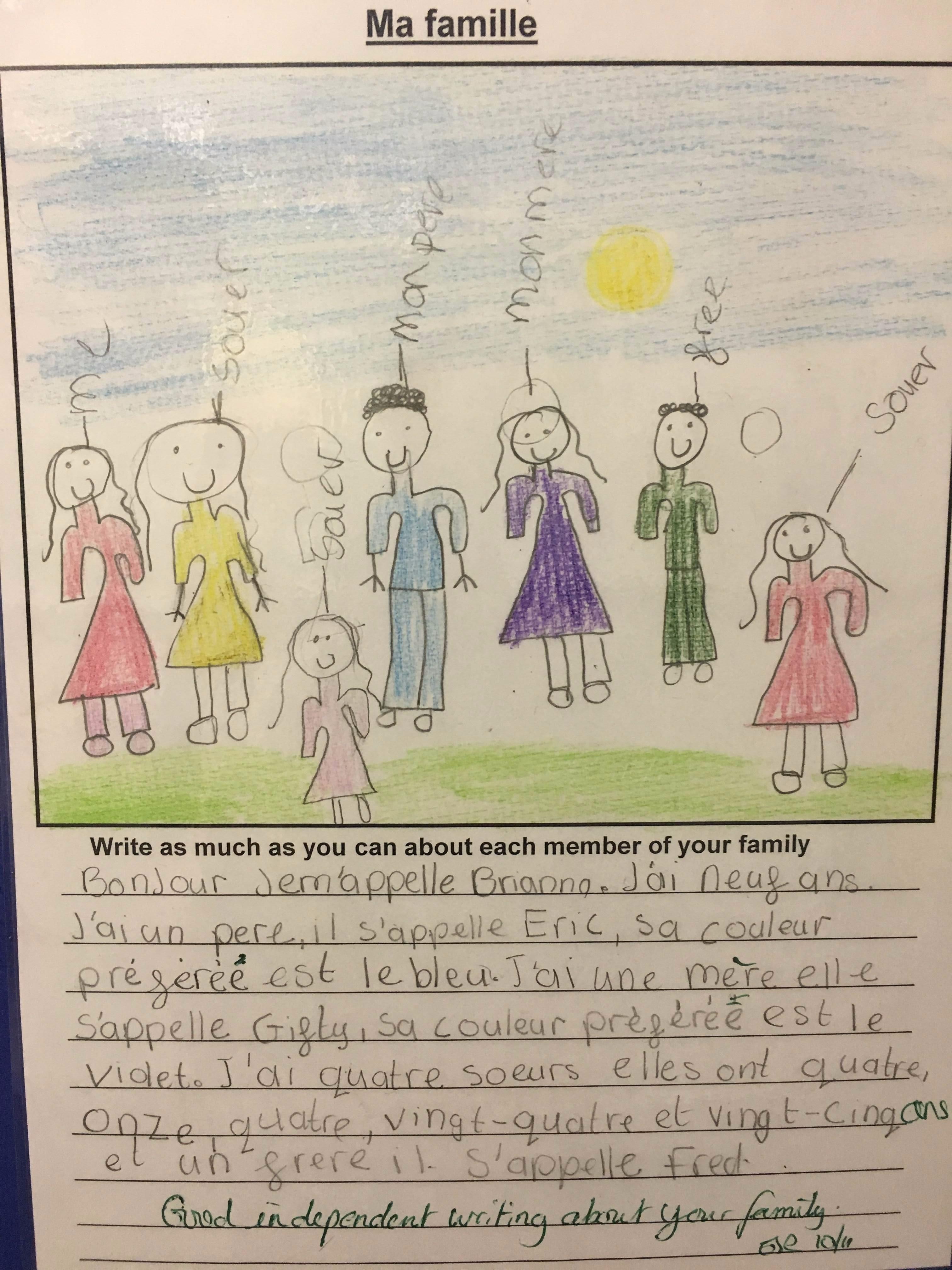
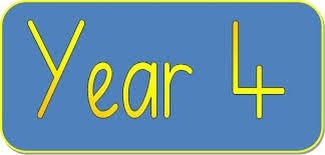
Children revise the vocabulary they learned last year but with greater emphasis on sentence building. They continue to explore the French phonic system and increase their knowledge of basic French syntax. The topics covered in year 4 are greetings, numbers to 30, family, colours, where we live, body parts, the weather, days, months and birthdays, clothes, animals, fruits and vegetables, classroom objects and sports.
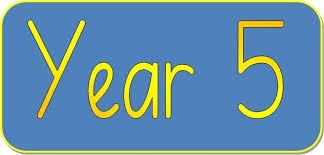
Children revise some of the vocabulary they learned over the last two years and explore new topics such as school subjects, hobbies, telling the time, prepositions, adjectives, describing someone and the French Revolution. The children are deepening their knowledge of French grammar, including rules of agreements for adjectives and articles. They are able to write more complex sentences, understand short written texts and practise listening to short conversations in French. In every lesson children have the opportunity to practise their French orally in pairs or in group conversations.
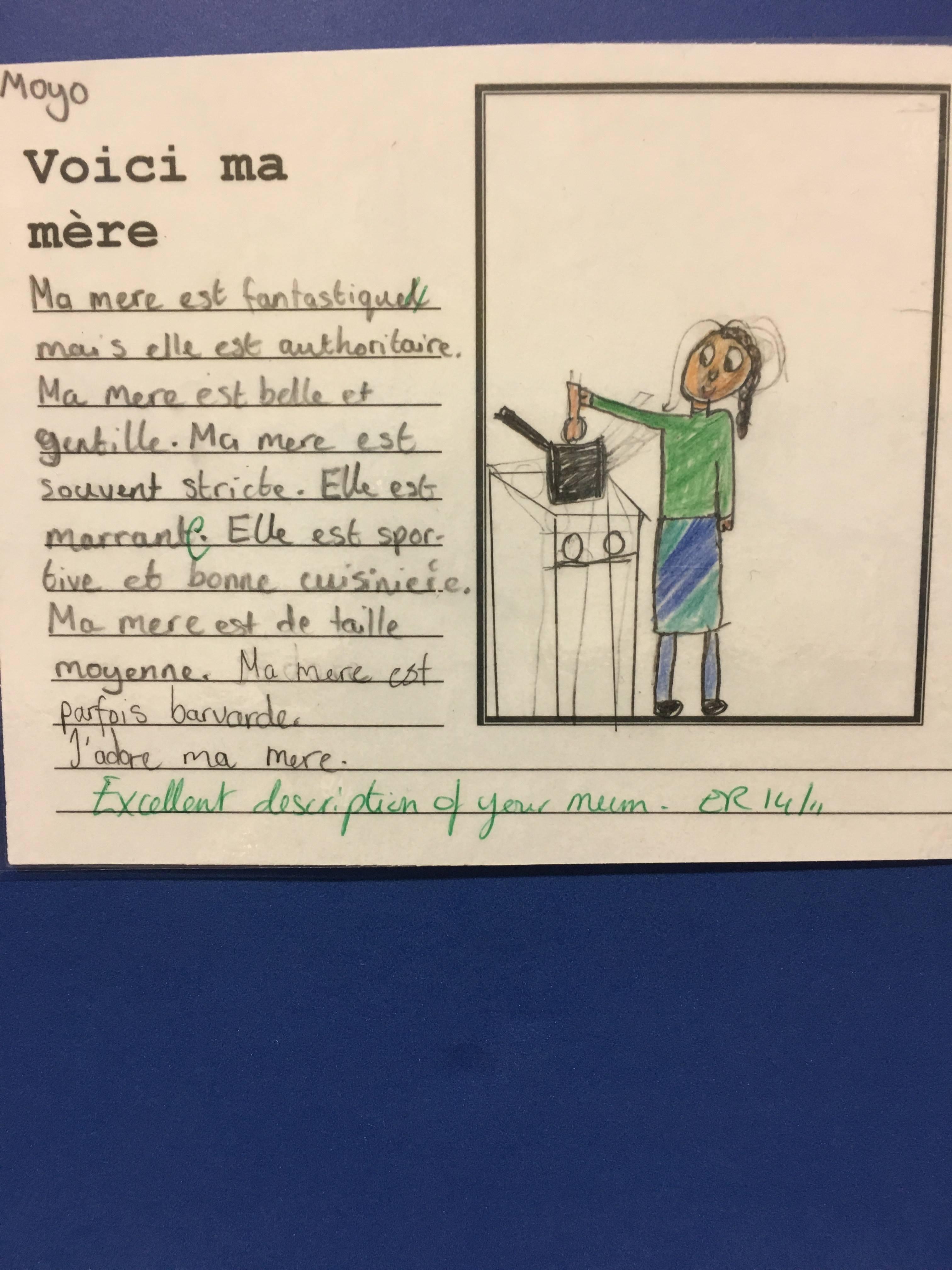
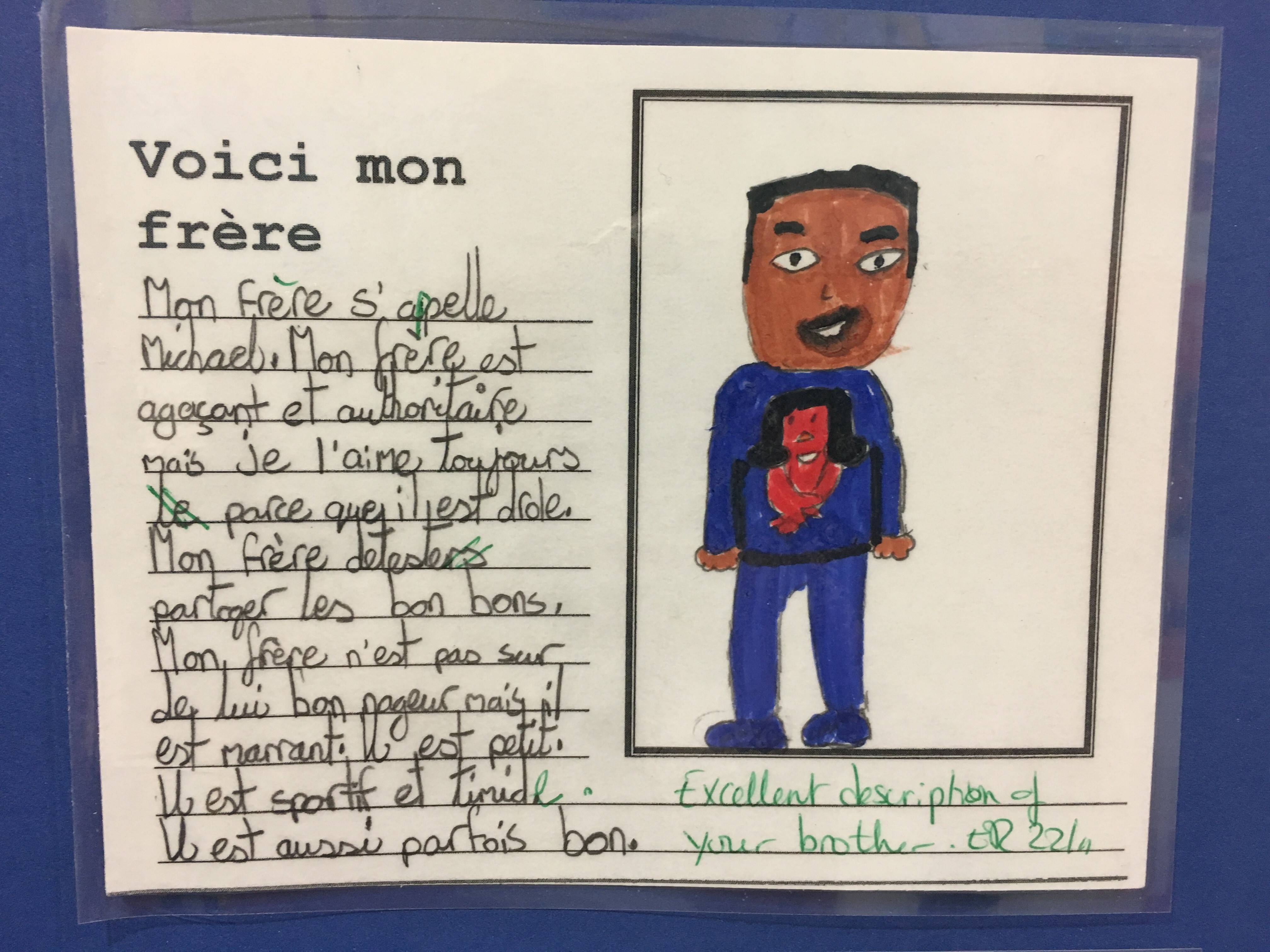
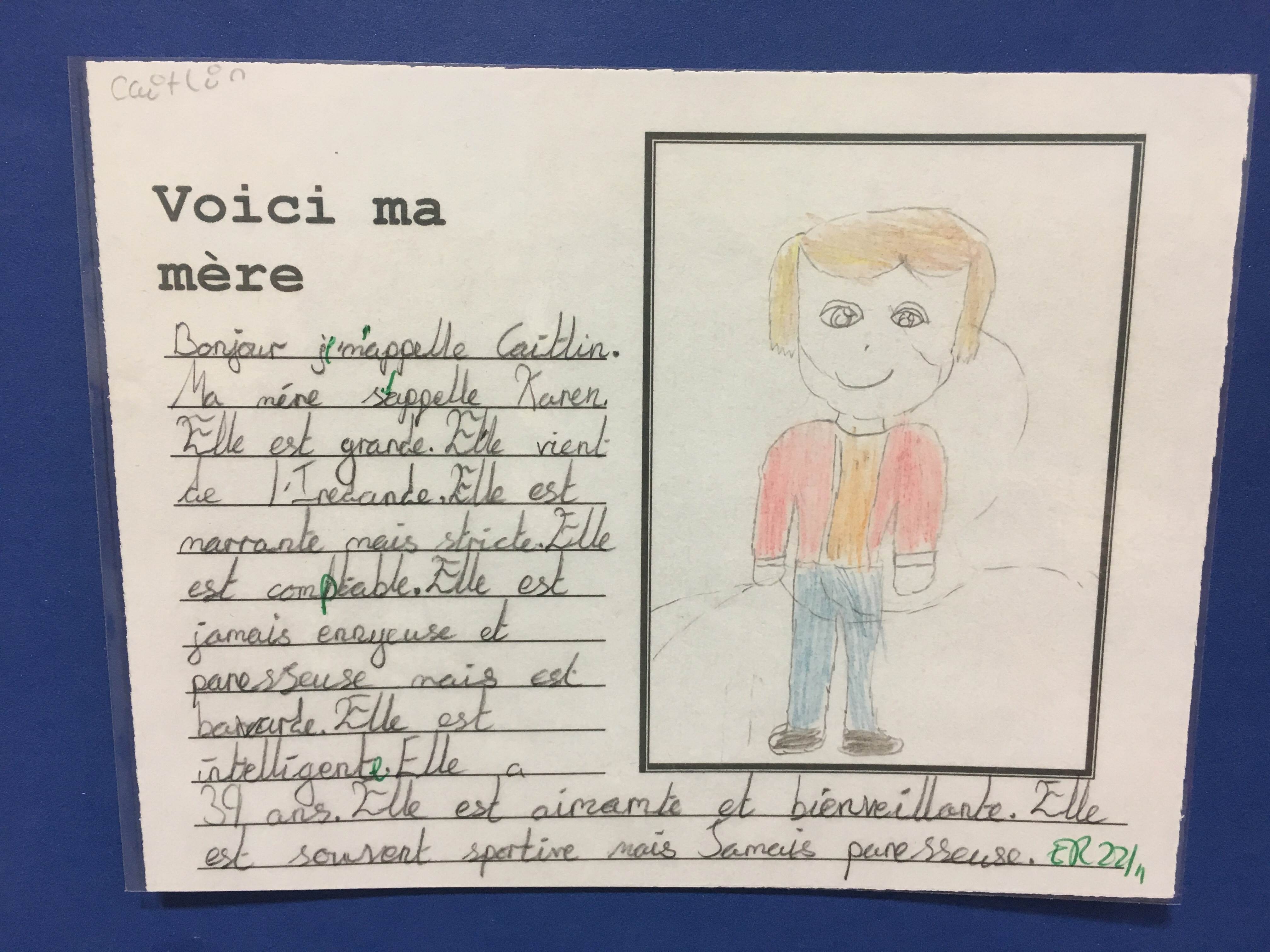
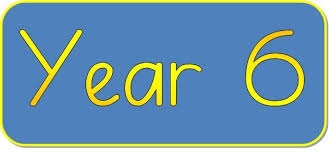
Topics in year 6 include greetings, numbers, days, months and birthdays, familiarising themselves with the Euro, family, directions and in town, describing people, clothes, hobbies, telling the time, conjugation, the house, daily routine, food and the use of adjectives, comparatives and superlatives. The children secure a good understanding of French grammar and are increasingly confident orally. They are able to write short paragraphs, understand short written texts as well as short conversations in French. By the end of year 6 children have acquired skills that will help them be successful in whichever foreign language they are allocated to in secondary school.
